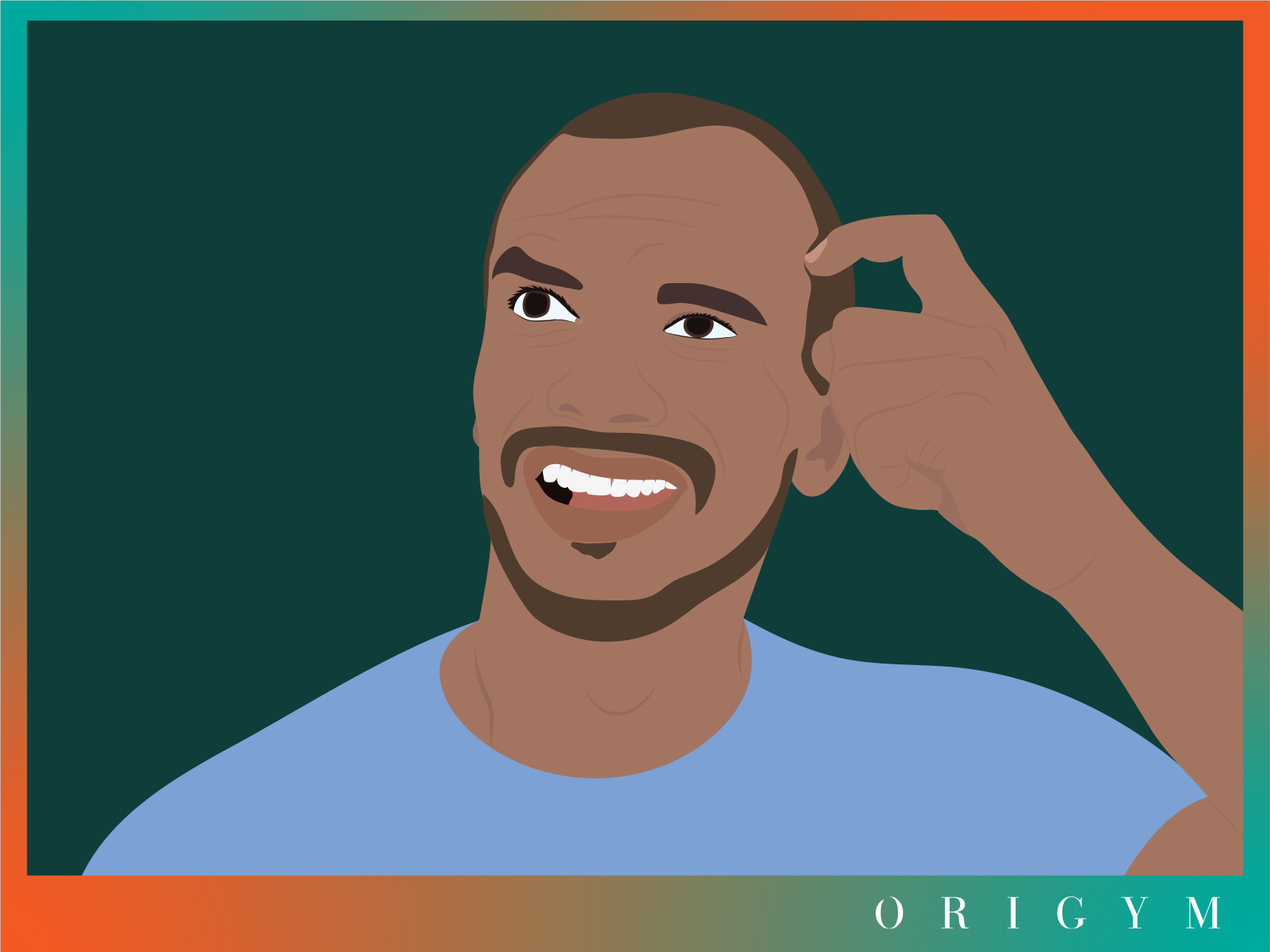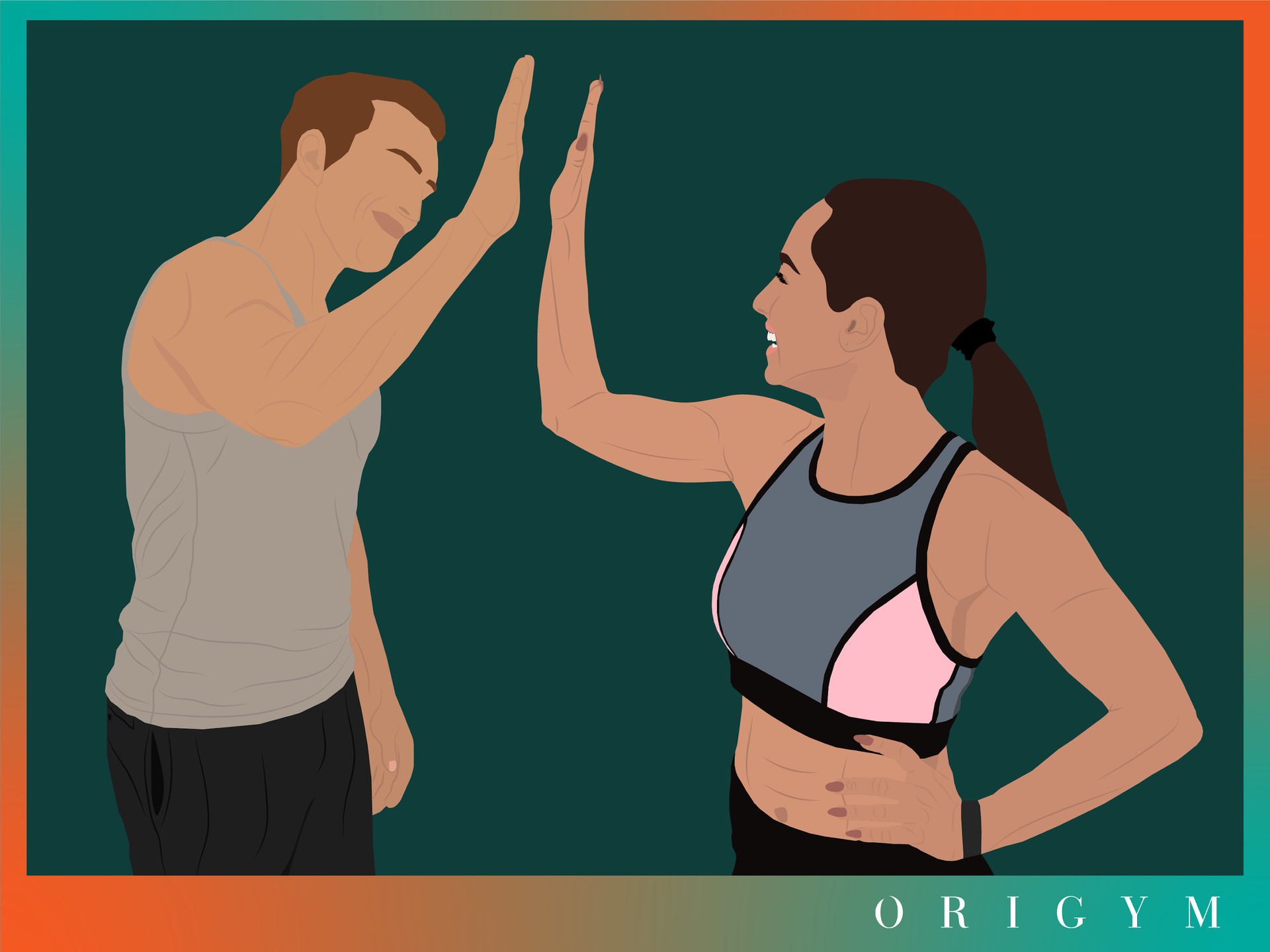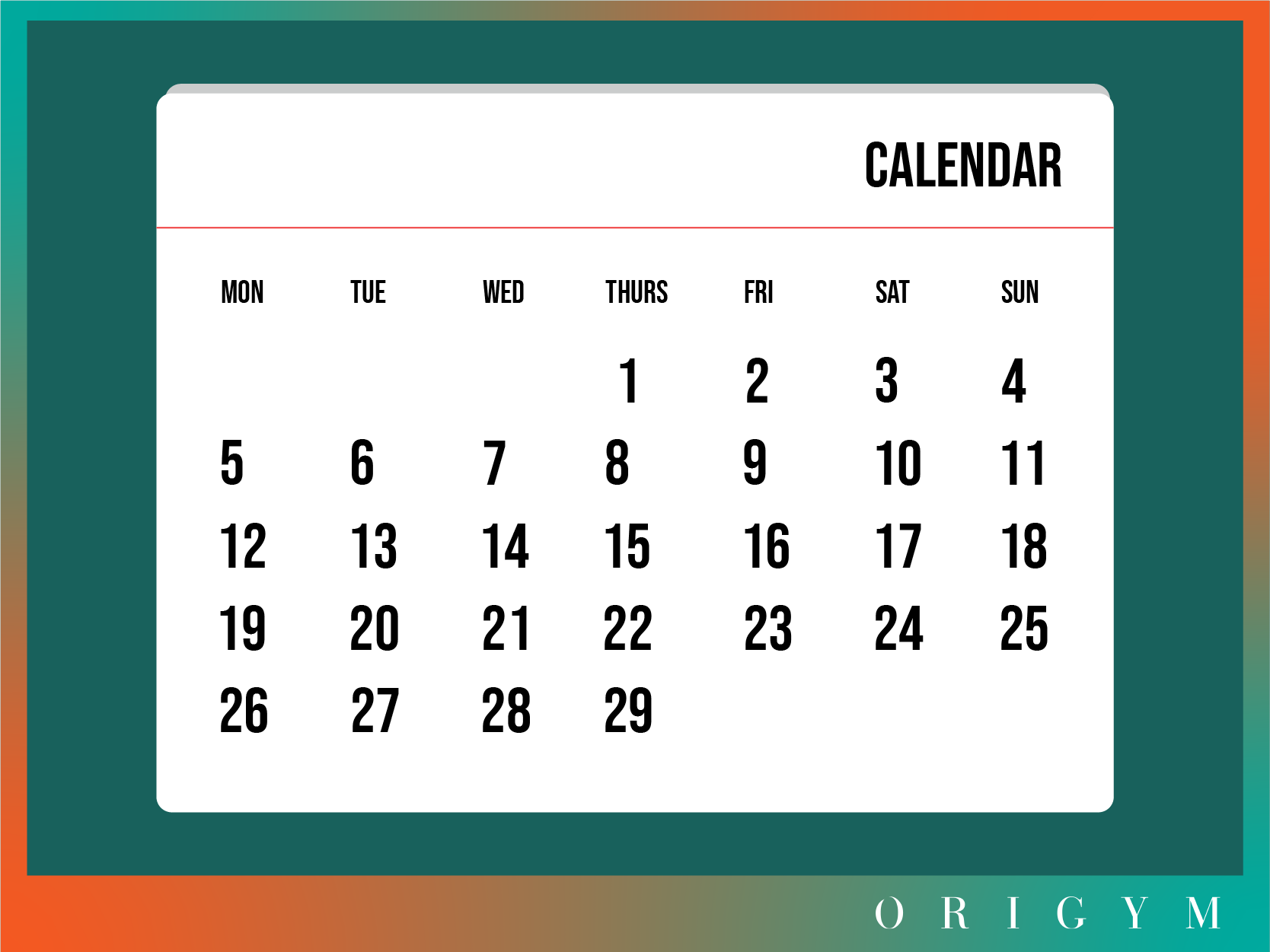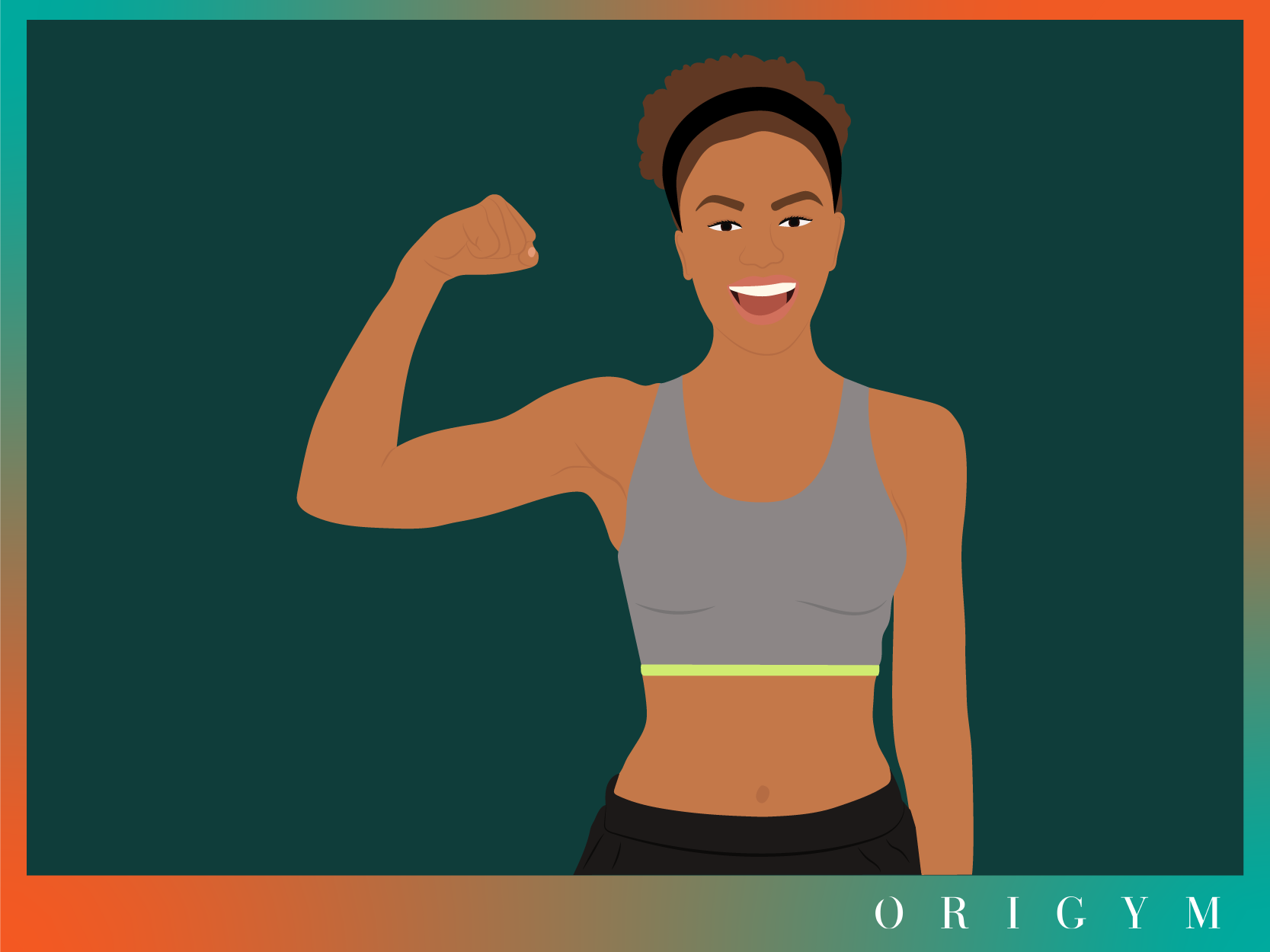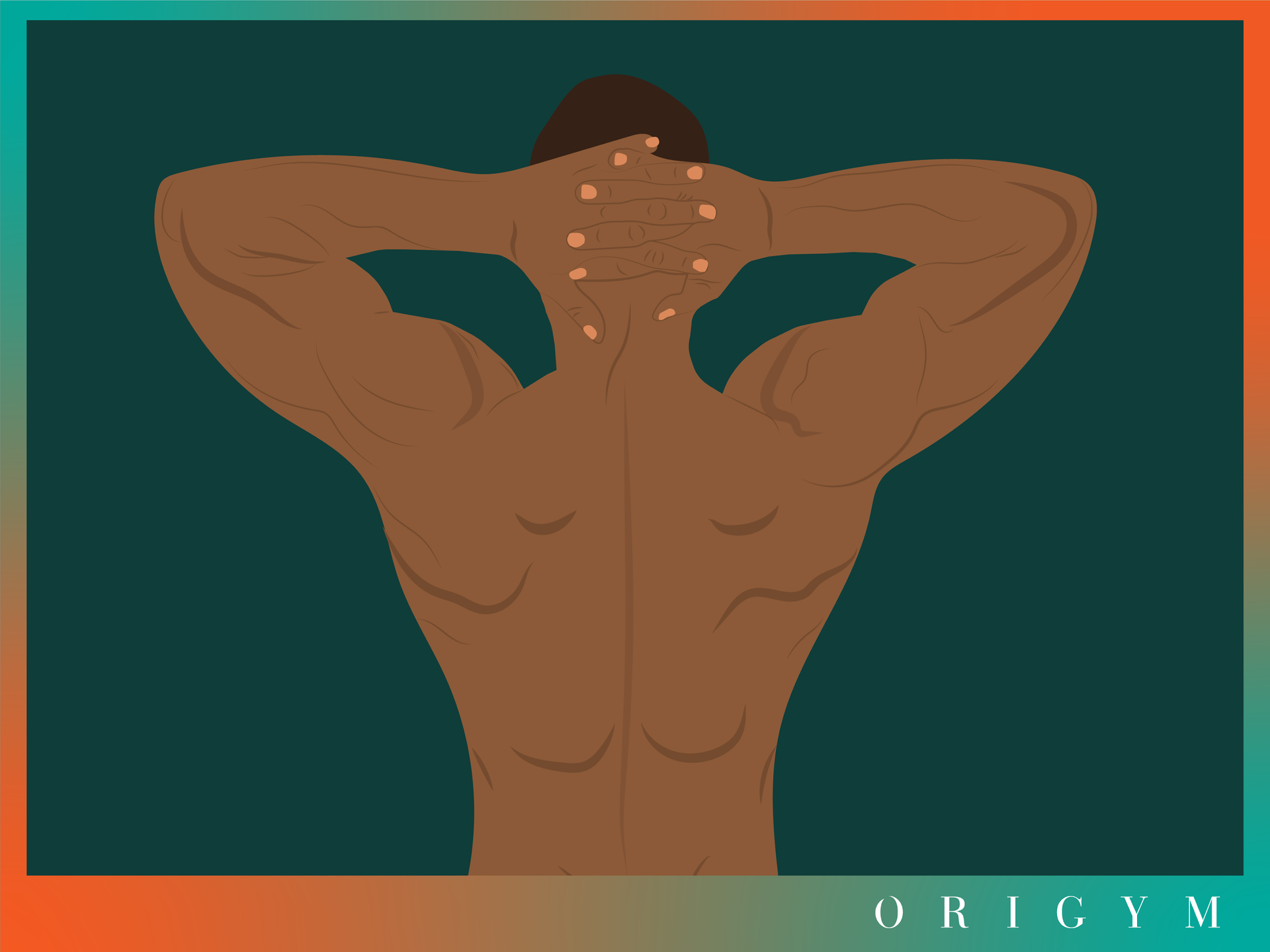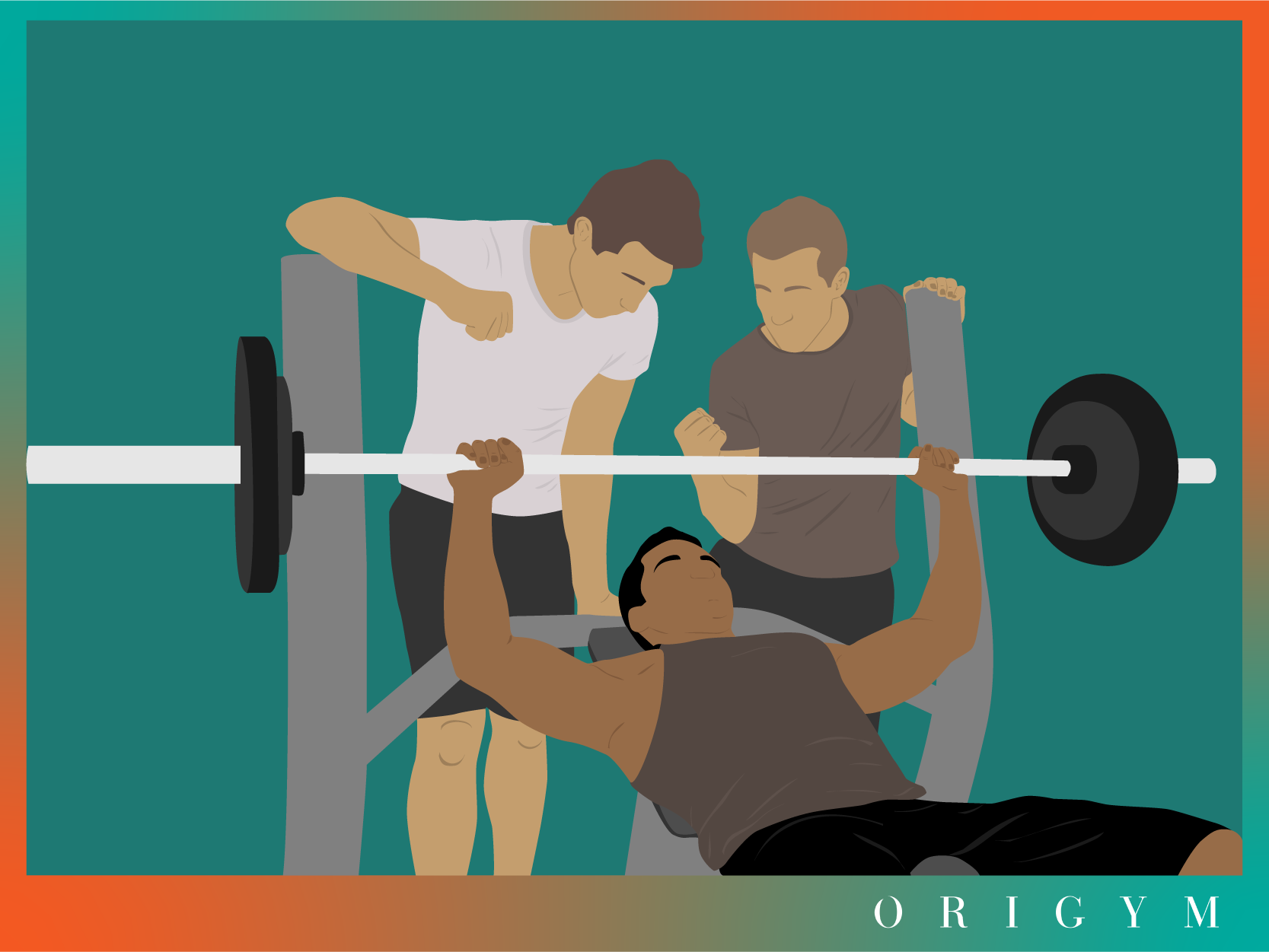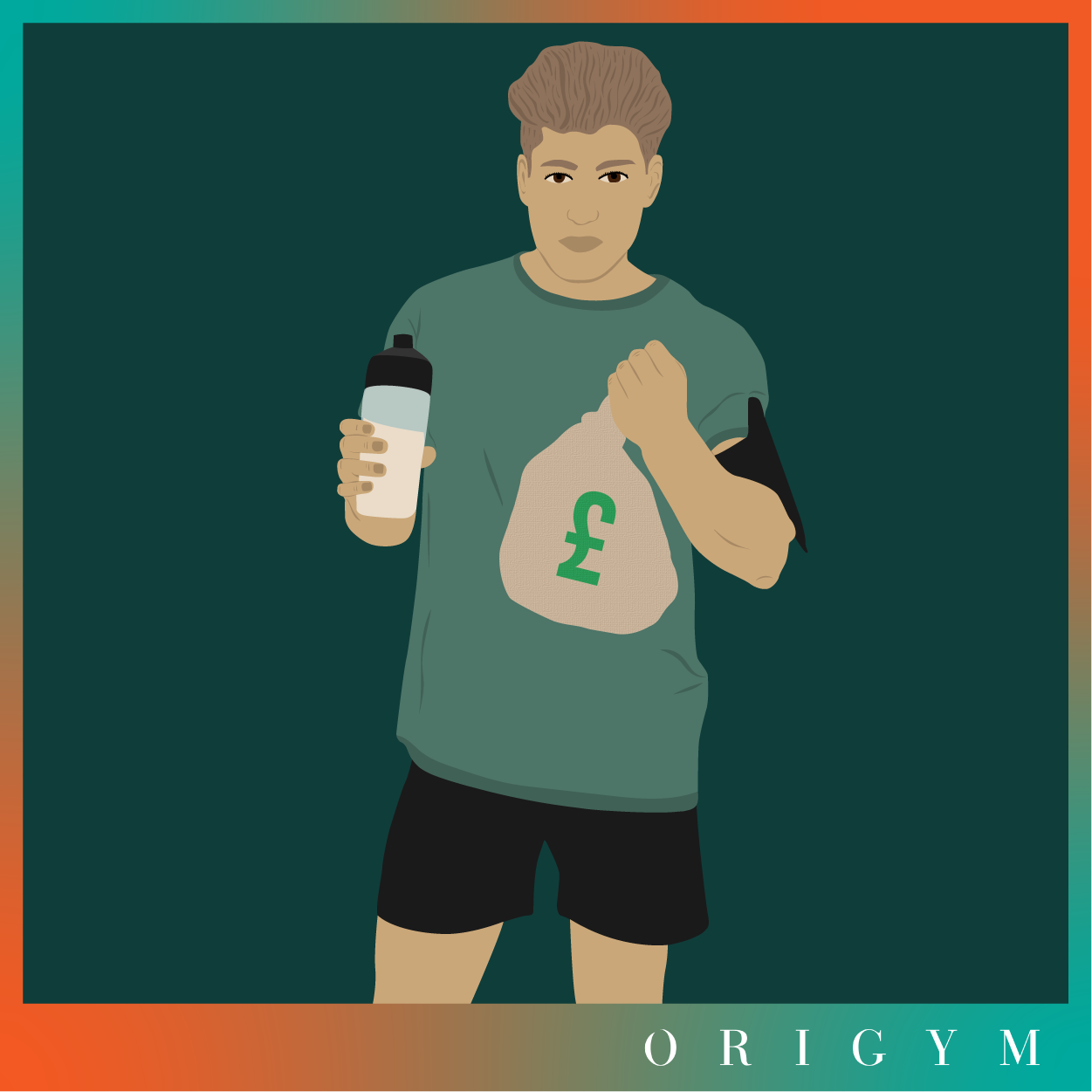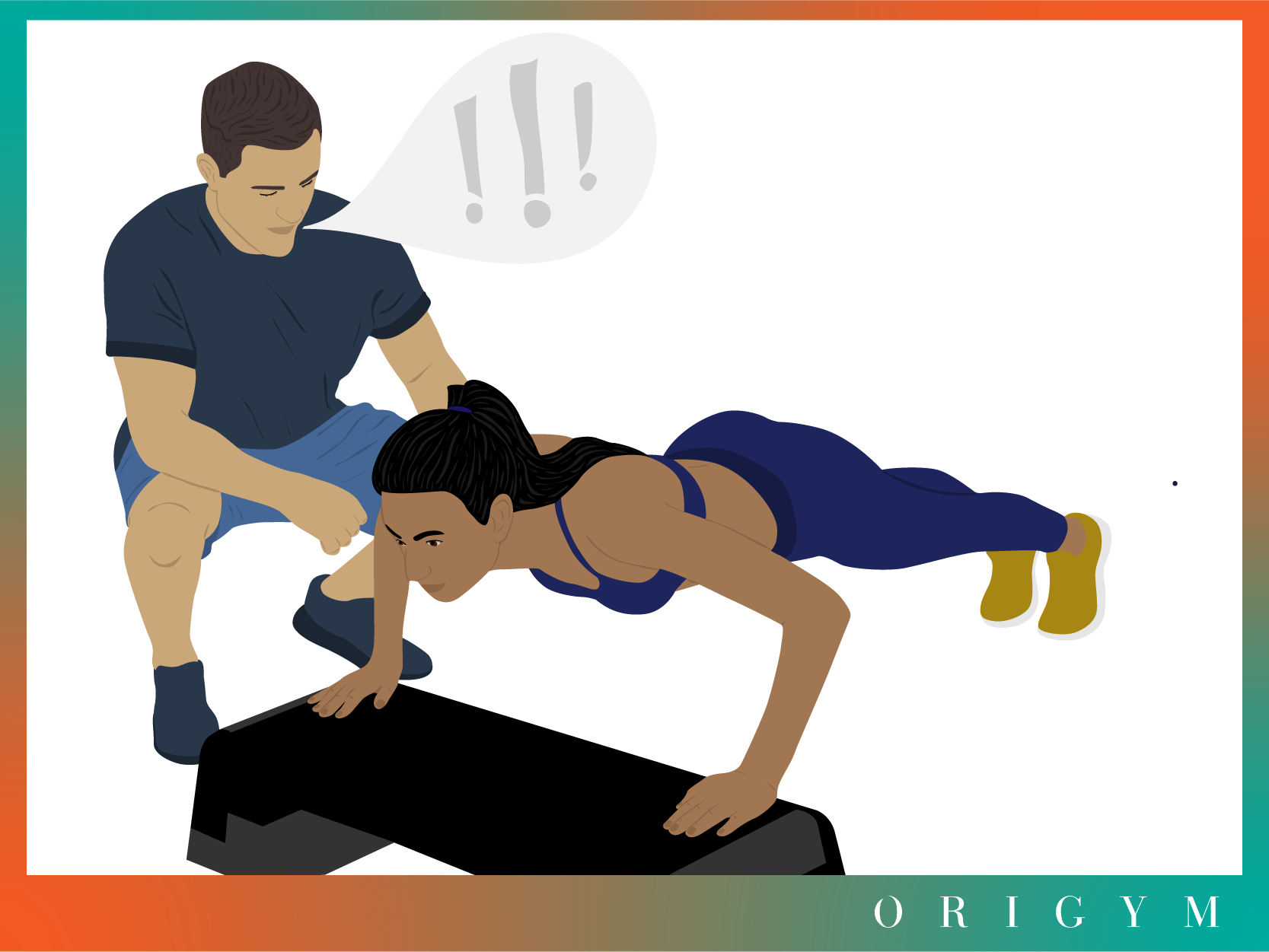If you’re asking yourself something along the lines of ‘should I become a personal trainer?’, then this is the article for you.
We’re about to examine the benefits of becoming a personal trainer, what you will get out of the role, how to get qualified, and we’ve also discussed some common myths that you might have heard about the fitness industry.
Contents:
- Is Being a Personal Trainer a Good Career Choice?
- What Does A Personal Trainer Do?
- Benefits of Being a Personal Trainer
- Myths About Becoming a Personal Trainer
But first, head over to our personal training course page or enquire about our CIMSPA endorsed Personal Training Diploma to get yourself started on your journey to becoming a personal trainer!
Want to know more about OriGym’s courses? Download a FREE course prospectus right here.
Is Becoming a Personal Trainer a Good Career Choice?
In order to answer ‘is being a personal trainer a good career choice?’, we did some research into what the world of business and employment had to say about what makes a ‘good’ job.
We found that based on the traits and characteristics of a role that are deemed desirable by job seekers, becoming a personal trainer is both a rewarding and a satisfying career.
We searched a range of business and employment blogs, such as Fast Company, and found the following criteria for ‘traits of a desirable job’ which also match some benefits of working as a personal trainer.
The traits of a desirable job include:
- Emotionally rewarding
- Benefits other people
- Flexible hours
- Opportunities for professional development
- Something that makes you feel valued
- Being able to share knowledge & expertise
- Meeting and working with new people
- Sufficient compensation (or salary!)
Considering the fact that a career in personal training meets all of the above criteria (and has further benefits that we will discuss very soon!), it’s no surprise that Personal Training was featured in this list of ‘Most Rewarding Jobs Where You Can Really Make a Difference’.
When describing why personal training is such a desirable career, the article states:
“By becoming a Personal Trainer, you could help people take steps towards being happier, healthier and more comfortable in their own skin. It’s about much more than helping people look good – regular exercise boosts energy and confidence so the role is as much about helping peoples minds as it is their body. Seeing the progress that people make from the start of their fitness journey can be very satisfying”
What Does A Personal Trainer Do?
Seeing as you’re here looking for answers to ‘why become a personal trainer’, it’s safe to assume that you’re at least thinking about getting qualified as a PT.
Regardless of how well this career ranks in lists of the most rewarding careers, you can’t truly know whether this is the right job for you without knowing what to expect from the role in terms of daily responsibilities.
So, what does a personal trainer do?
You’re probably already aware that the main duty of a personal trainer is to run 1-1 personal training sessions. Many of the other roles and responsibilities of a PT include tasks that facilitate the running of 1-1 sessions such as conducting fitness assessments, writing training plans, and checking in on clients.
Outside of that, there are a whole range of tasks that make up the personal trainer job description.
Much of what a personal trainer does in a day depends on where they work and how they are employed. For example, if you land a salaried job within a gym, you should be prepared to do some more mundane tasks such as cleaning and maintaining the gym floor, covering the reception desk, and running gym inductions.
On the other hand, if you work as a freelance or self-employed PT, then you should expect to spend a lot more time on tasks such as marketing your personal trainer business, following up on leads, and actually running sessions!
A lot of the time when we ask students ‘why do you want to become a personal trainer?’, their answer usually centers around the fact that no two days are the same. For us, the fact that every day is different is definitely one of the best things about working in the fitness industry.
Even though a lot of your time will be spent training clients, no session is ever the same. Being able to work with clients of varying ages, abilities, and exercise goals means that there is no definite answer to ‘what does a PT do?’ as the role is extremely versatile.
12 Benefits of Becoming A Personal Trainer
If you’re still wondering ‘is it worth becoming a personal trainer?’, you won’t be for long!
Just below, we’ve listed 12 benefits of this career path so that you can see why you should pursue a career as a personal trainer.
#1 Emotionally Rewarding
Anybody with experience of working as a personal trainer will tell you that nothing beats the feeling of helping others hit their fitness goals and the emotional reward that comes with that.
You can take a client who is on the verge of tears and physically shaking at the thought of stepping foot in the gym, and help them to become a confident, self-assured individual.
Here’s what OriGym Personal Trainer, Kimberley Mitchell, had to say about this benefit of working as a certified PT:
“Once you have worked as a PT for a few months, you soon see that the job doesn’t just help people to get fitter, your work can actually help people to feel better about themselves, even boosting their mental wellbeing. Honestly, nothing beats that feeling and for me, it’s the number one reason why I want to be a personal trainer for years to come.”
#2 Flexible Timetable
If you are on the fence about whether you should quit your job to become a personal trainer, you might want to consider the hours that you will be working.
You’ll probably be pleased to know that as a personal trainer, you have a lot of control over your schedule, especially if you decide to go freelance or start your own business!
If you’re an early bird, you can schedule your clients for first thing in the morning, leaving you plenty of time to go about your day after work. Never want to work another evening or weekend in your life? That’s very much possible as a freelance PT!
When weighing up the pros and cons of being a personal trainer, this has to be a massive plus!
#3 A Career You Care About
We all dream of a job where we actually look forward to getting up and going to work each day. As the saying goes, if you find a job you enjoy, you’ll never have to work a day in your life!
So, if you’re passionate about fitness, what better way to ensure full job satisfaction than by pursuing a career in the fitness industry?
Here’s a quote from Lifehack about why you should pursue a career that you truly care about:
“When you work at a job you’re passionate about, you’ll be able to focus more and get things done on time because those tasks don’t feel like such a burden. When you’re simply working for money, motivation is more difficult to find, which may lead to longer hours in order to get things done.”
When you think about it, if you can do something that you love every day, and get paid to do so, why are you even questioning ‘should I become a personal trainer?’, surely the answer should be a huge yes!
#4 There is Demand for Personal Trainers
The fitness industry is now estimated to be worth €300 million in Ireland alone, a figure that has increased by 20% over the last 5 years.
There are more gyms, private studios, public awareness and initiatives than ever before, which is brilliant for individuals who work (or those who are aspiring to work) in the fitness industry.
If you’re asking yourself, ‘should I quit my job and become a personal trainer?’, you may want to start writing that resignation letter as it has never been a better time to pursue a career in personal training.
The volume of establishments looking to hire qualified personal trainers is far outweighed by the number of trainers actually qualified in Ireland.
Not to mention, the demand for online personal training services has rocketed since the start of the year, a trend that is set to continue for the foreseeable future.
#5 Wear What You Like
If you’re not yet convinced that you should become a personal trainer, just think how nice it would be to whack on your trackies and trainers in the morning instead of pulling on a shirt, tie, and smart shoes every day.
No more sitting in a stuffy office wearing a suit, as long as you are clean and well presented, you can spend those hot summer days in shorts. Who knows, wearing shorts to work might even inspire you to start an outdoor fitness boot camp business!
According to Hive, studies have even suggested that employees are more productive when they don’t have to adhere to a formal dress code:
“When people are able to wear the clothes that they’re comfortable and confident in, morale is higher and people are more productive overall.”
The study concludes:
“61% of employees are more productive when the dress code is relaxed, and 80% of people who work in an environment with a dress code responded that they don’t find them useful.”
#6 A Challenging & Diverse Role
Another benefit of working in the fitness industry is that personal training clients come in all sorts of shapes and sizes, each with varying fitness goals.
Once you complete a Level 4 Personal Training course you will be able to work with clients who want to achieve fat loss, tone up, gain strength, and improve flexibility, as well as clients who require sport specific training, or have injuries that need catering to.
This adds an element of challenge to the role and provides variety to tasks such as programme writing and running training sessions, which ultimately diversifies your day to day routine.
Working with such a range of clients will keep you on your toes and requires you to continuously learn and educate yourself on a vast array of fitness topics, especially as the industry continues to evolve with new training methods and enhanced science.
#7 Keep Yourself Healthy
Another great reason to become a personal trainer is that it is an active job that allows you to keep fit and healthy.
Whether you’re taking 1-2-1 PT sessions, running a group class, or carrying out gym induction, personal trainers spend a lot of time on their feet, burning calories, and getting those steps in!
Pursuing a career in the fitness industry makes it much easier to keep fit. Since you spend so long in the gym, there is no excuse for missing your own session! It’s super easy to squeeze in a quick workout before or after work, or during breaks between clients.
#8 Share Your Knowledge
As mentioned in our list of desirable job traits, the ability to share knowledge is something that is highly valued by individuals searching for their dream job.
Fortunately, this is something that is very much possible if you pursue a career in personal training.
There are thousands of people across Ireland that need the help, expertise, support and guidance of a PT in order to help them to achieve their fitness and nutrition goals. Just think about how rewarding it would feel to be the person that others are coming to for knowledge and expertise.
Sharing your knowledge and expertise, and seeing that convert into action through your clients programmes, is something that is guaranteed to give you great pride in what you’re doing for a living.
#9 Meet New People
Still not sure why you should be a personal trainer? As a PT, you get to meet new and interesting individuals pretty much every day. Whether that be clients, gym members, or other fitness professionals – working as a PT is arguably one of the most social jobs that you can do.
If you’re a social individual with a bubbly personality then this is an ideal career path for you as you will spend huge amounts of time getting to know people, chatting to them, and obviously, training them.
That’s why social skills, such as the ability to build rapport, being confident in social situations, and coming across as an approachable individual are all essential skills of a good personal trainer.
#10 Unlimited Earning Potential
Is it worth becoming a personal trainer in Ireland? Just look into a personal trainers potential salary and the figures speak for themselves!
Whilst the average personal training salary in Ireland is €26,400 per year, there is no end to the upper limit. Some extremely successful personal trainers who have been in the exact same position that you are in now, have gone onto open their own gyms, personal training studios or online personal training businesses. In these examples, earnings are often in the 6 figure range.
#11 Work With Like-Minded Individuals
Another great reason to become a personal trainer is that you get to work with loads of brilliant, like-minded people.
As well as meeting new gym members and clients, PTs get to work with other fitness professionals and even those not in personal training roles tend to have a big interest in health and fitness.
We all spend huge amounts of time at work, so who you work with and the working environment is incredibly important. When working as a personal trainer you can interact with people that share the same passion for fitness as you on a daily basis and build lasting friendships that will stand the test of time.
#12 Getting Qualified is Affordable
One further benefit of becoming a PT is that getting started with this career is far more affordable and much easier now than it used to be.
Nowadays, there are more gyms than ever before, more focus from the government on health and wellbeing, and the cost of personal training courses has reduced massively.
In order to get qualified as a personal trainer, you will need to complete the following courses:
Both of these qualifications can be completed through various learning styles, including:
- Part-time Courses (also known as ‘blended learning’, combing online study and face-to-face workshops)
- Online Personal Trainer Courses (learn online at your own pace)
Benefits of Being an Employed VS Freelance Personal Trainer
If you’re thinking about whether you should become a personal trainer, one thing to consider is that there are various career paths within this industry. The main options are to work as an employee for a gym, to become a freelance PT, or working as a sole trader.
Outside of the benefits listed above, each of these career options have their own benefits (and drawbacks), which makes choosing the right option a huge consideration when thinking about whether becoming a personal trainer is a good career choice.
For example, some of the benefits of being a freelance Personal Trainer include:
- Take holidays when you like
- Set your own working hours
- Choose your freelance hourly rate
- You will be your own boss
Why be a Personal Trainer that is Salaried for a gym? Here are the benefits:
- Set basic wage
- Guaranteed personal trainer hours and pay
- Free Gym Use
- Free PT Insurance
- Free CPD courses
There are tons more benefits of each of the above career options, so much so that we have put together the following YouTube video discussing the pros and cons of the top 10 personal training career options.
Myths About Personal Training
If you’re still with us at this point, it’s fair to say that you’re pretty interested in pursuing a career in the fitness industry.
Now that we have listed some of the reasons why being a personal trainer is a good career choice, we thought that it was only right to discuss a few personal trainer myths that you may have heard.
Here are a couple of myths that often influence decision making when people question ‘why should I become a personal trainer’:
#1 “I can only work in a gym or as a freelance trainer”
This is something that we hear a lot from people who haven’t done their research into the various career paths and types of professional development that a personal trainer can pursue.
This is absolutely incorrect as there are tons of different job positions that you can pursue after completing a personal training diploma, including:
- Working in a hotel or on a cruise ship
- Working for a fitness charity, for example running warm ups before charity runs
- Working for the NHS as a PT or an Exercise Referral Specialist
- Landing a job at an obstacle course or adventure centre
- Insurance companies use PTs as part of their aftercare packages
- Becoming a fitness course assessor at a College or private course provider
- Getting a job for the Ministry of Defence to keep regiments fit
#2 “Personal trainers don’t earn a lot”
Another claim that people make about working in the fitness industry is that personal trainers are not well paid.
However, as we already touched on above, PTs actually have an unlimited potential, so this is another complete myth.
The truth is that unsuccessful trainers do not earn a lot. However, trainers that work hard, move away from salaried roles and set up their own business, and master their personal trainer marketing strategy, go on to have a very lucrative career.
It is absolutely possible for successful personal trainers with a loyal client base and a high-hourly rate to earn up to £200,000 per annum.
#3 “Motivating a client means shouting during a session”
This is not only a myth, but it’s actually the exact opposite of what a good personal trainer should do.
The screaming PTs are normally the ones who struggle for clients because believe it or not, people don’t like being shouted at!
Shouting at clients is definitely not a best practice, instead, motivation comes in a range of different forms. Some great ways to motivate clients include progress reports, motivational emails, rewards, and incentives to simple compliments on progress or how well a client is performing in a session.
Remember that all clients will respond to types of motivation differently, and that a good personal trainer is one that can figure out the best way to approach individual clients.
#4 “There is too much competition in personal training”
Whilst it is true that there are now more qualified personal trainers in Ireland than ever before, the demand for personal training, and the number of commercial and private gyms is also at an all-time record high.
There are far more prospective clients to go around than ever before, so provided that you are a good PT, the competition is nothing to worry about.
Before You Go!
We hope that this article has helped you to get a better idea of whether becoming a PT is the right career for you.
Outside of the reasons listed above, don’t forget that your opinion is the one that counts the most, so be sure to ask yourself, why do you want to be a personal trainer?
If you’re feeling excited about kick-starting this exciting new career, be sure to check out our range of CIMSPA endorsed personal training qualifications or download our latest prospectus for free!

